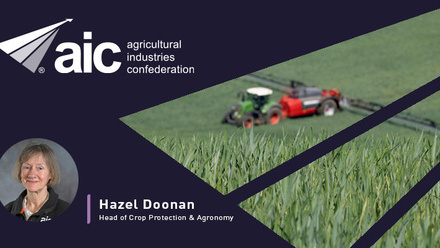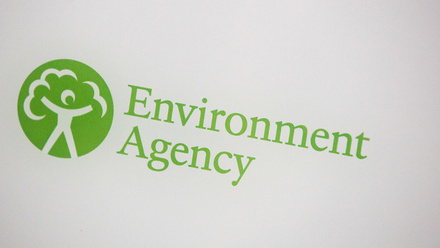Analysis: What the National Audit Office report tells us about Defra’s Farming and Countryside Programme
The National Audit Office (NAO) has published a report on Defra’s Farming and Countryside Programme (FCP) which looks at managing the Programme and addressing key risks, delivering environmental outcomes and food production, and seeks to improve farm productivity and maintain a viable farming sector.
Vicky Robinson, AIC's Head of Sustainability, takes a closer look at the report's findings.

The NAO's "Farming and Countryside Programme report" says that growing confidence in the Government's flagship Sustainable Farming Incentive (SFI) scheme (reflected in the increasing number of applications) is tempered with views that the iterative approach to scheme development was hampering long-term planning and increasing risk for farming businesses.
The iterative approach is a conscious decision to balance the main objectives of the Programme:
- Delivering environmental outcomes
- Maintaining food production
- Securing a thriving farm sector
These objectives are being delivered through a blend of schemes, regulation, and advice.
AIC's view
The NAO report highlights several important points. The Agricultural Industries Confederation (AIC) welcomes points made on the need to increase productivity to meet the food production requirements of a growing population, in addition to those made on the need for the Department for Environment, Food and Rural Affairs (Defra) to share their data alongside the much-awaited Land Use Framework.
AIC stresses the need for longer-term stability to increase confidence in the industry and the resulting investment that is required.
Find out more about what agri-food supply chain businesses need from the UK Government.
Summary of recommendations
Overall, the NAO made several recommendations to Defra:
- Ensuring a comprehensive assessment of funding needs of the Programme
- Providing clearer direction for the Programme’s development, strengthening environmental objectives related to species abundance and pesticide reduction
- Enhancing digital and data infrastructure
- Developing a unified advice package for farmers
- Increasing transparency in areas such as farm viability and land-use change modelling
Environmental outcomes scrutinised
Monitoring environmental outcomes came under scrutiny with a monitoring programme still under development despite schemes being delivered.
Defra has now established 16 environmental objectives for the Programme, which is key to delivering the 2023 Environmental Improvement Plan (EIP), with specific outcomes in water quality, air quality and carbon reductions.
The objectives do not include a specific objective to reduce pesticide use in farming to support EIP23 Goal 4: "Managing exposure to chemicals and pesticides".
The much-delayed National Action Plan of Sustainable Use of Pesticides is key to this and an objective will be set once it has been published. Read more on what the National Action Plan needs to deliver for UK agriculture below.
Food production pressures
Defra’s analysis shows that to maintain food production proportionate to the expected growth in population the annual growth in output of land remaining in production needs to be slightly higher than over the last 15 years.
To meet this, Defra expects productivity gains and increased crop yields to offset the impact of its agri-environment schemes on food production and intends to publish analysis on delivering environmental outcomes and food production in tandem with the long-awaited Land Use Framework.
AIC has long called for a Land Use Framework to guide the UK's long-term, strategic planning decisions, giving businesses much-needed confidence and clarity on the Government’s vision for our land, managing the competing pressures on it, and the role of food producers within it.
The Defra analysis shows that the scale of land-use change required means that trade-offs need to be minimised to maintain domestic food production through areas such as spatially targeted schemes, technological innovation, investment in farmer skills and improvements in overall productivity through improved nutrient and pest management.
The NAO report finds that Defra's cautious approach to sharing its data on land-use change, impact on food production and farm viability is undermining overall trust with around half of England’s farmers not being optimistic about their future in farming.
It has also assumed that farmers have a strong incentive to increase productivity given more than a third of farm businesses covered by their modelling need to make productivity improvements to remain viable after 2028.
The essential role of good quality advice to ensure the success of the grant schemes is recognised, a point that is supported by the conclusion of AIC's Test and Trial Report on the value of advice.
However, the report states that Defra's existing model needs to evolve to a "whole-farm" tailored approach addressing what would deliver the environmental and business objectives of a farm business rather than the current Farming Resilience Fund's focus on business support through the transition period.






